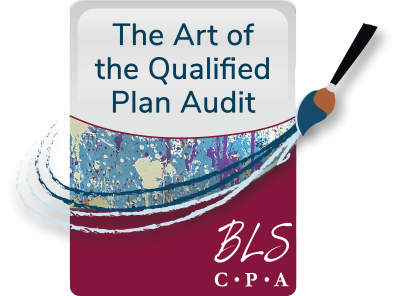How to Order a Triple Stack Match for Your Plan
December 08, 2016
We often ask the question, “How does our 401(k) plan stack up?”
What am I signing? – A quick guide to management representation letters
November 30, 2016
Plan administrators probably view the management representation letter as a document they must sign so they likely do so without reading it closely.
2017 Plan Limits Announced: Don’t Forget to Update Your Deferral Election
November 08, 2016
Along with the presidential election on Tuesday, November 8, another election that participants should have on their mind is the deferral for their retirement plan.
DOL Fiduciary Rule
October 27, 2016
On April 6, 2016, the U.S. Department of Labor (DOL) issued its final rule expanding the definition of investment advice fiduciary under the Employee Retirement Income Security Act of 1974 (ERISA) and modifying the complex list of prohibited transaction exemptions as it relates to the expanded definition.
The 5500-EZ Delinquent Filer Program
June 28, 2016
In the retirement plan industry, 2 + 2 can be 4, or many other amounts depending on the actuarial assumptions used. Similarly, one-participant plans can actually cover hundreds of participants.
Correction Program Options for Retirement Plan Errors
June 06, 2016
Posted by Maria T. Hurd, CPA Disclaimer: All blog posts are valid as of the date published. In a highly regulated industry with complicated rules that always have exceptions (except when the exception does not apply) it is inevitable that sooner or later a failure to follow the plan document will take place. Such operational … Continued
Know Your Limits
June 01, 2016
Our lives are filled with limits; speed limits, credit limits, time limits, and a number of different retirement plan limits.
Mid-Year Amendments to Safe Harbor Plans
May 19, 2016
It is not often that we can give our clients good news as a result of new guidance from the Internal Revenue Service, but thanks to Notice 2016-16, Mid-Year Changes to Safe Harbor Plans and Safe Harbor Notices, we have fantastic news.
Elective Deferral Election Benefit Plan Administration
April 18, 2016
One of the most common operational errors when administering retirement plans is the failure to implement a participant’s elective deferral election or change in percentage.
Accounting Standard Update 2015-12 – Simplifying Retirement Plan Financial Statement Disclosures
March 16, 2016
Users of accounting information make informed decisions using information contained in the financial statements.









